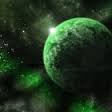|
Mars One 2023
|
|
| robertinventor | Date: Thursday, 19.02.2015, 09:24 | Message # 76 |
|
Observer
Group: Users
 United Kingdom
United Kingdom
Messages: 10
Status: Offline
| Actually the Moon is looking much more habitable now than it seemed a few years back because of discovery of volatiles there at the poles and quite possibly below the surface in sub polar regions.
But - it's never gong to be habitable as in "Earth habitable" either Moon or Mars. I can't see that ever happening - whatever we do on Earth we will at least be able to breath the air, and the high atmospheric pressure means we can use ordinary buildings without need to hold in ten tons per square meter of atmosphere with buildings strong as tanks pretty much like the ISS modules and protect from radiation and micrometeorites.
Lunar caverns may be the easiest to build in, already underground, stable temperature, may already have volatiles in them also, that is if humans can withstand the lunar gravity long term which we don't know, or some easy method found of dealing with it (e.g. short arm centrifuges, can we tolerate such fast spin rates??)
Still given the expense of getting water to LEO - if there is water in the Moon easily available could be an economic reason for using it. But with the Moon also we need to go slow to start with, because for instance, the lunar atmosphere is very fragile. A single large rocket would double the amount of volatiles. And depending on the rocket fuel it could stay for a long time.
So no risk of contaminating the Moon with Earth life growing there as far as we know. But is a risk of contaminating its atmosphere with rocket fuel, which would then make it hard to study the way that volatiles are captured by the Moon and how they are distributed, and where they come from (from the Earth, from solar wind, comets, interstellar sources at times when the sun goes through thick molecular clouds - are the main ones).
So - if we want to have a good scientific understanding of how the Moon works we need to have some preliminary missions with lightweight probably robotic missions to study the Lunar atmosphere as it is now with no recent very large spaceships landed on the Moon. And those also would tell us things that might change future human spaceflights to the Moon. E.g. we might find ice inlunar caverns. Or a few meters underground in sunlit sub polar regions, we don't know what is even a couple of meters below the ground on the Moon (Apollo astronauts didn't drill that deep) also not studied the sub polar regions, or the far side, know very little really about the Moon surface, just from orbiting missions mainly and the rocks returned by Apollo - which were not primarily science missions. Most of the rocks were picked up by astronauts with only basic geological training - a few field trips on the Earth - and we only had a geologist along on the last trip and before then only able to advise from EArth looking at poor quality video footage.
So - despite Apollo and the returned rocks, really we haven't studied the lunar surface that well at all. So - I think we need to do that first, no matter what. And send some robotic and telerobotic missions to the Moon before we do anything. Government sponsored because private companies can't 'be expected to do this sort of basic fundamental research.
And if we do that, then that lays the basis for future successful commercial use of the Moon depending on the findings, and done consistently with continuing scientific investigation as well. But just launch to the Moon or Mars without investigating properly first - and - the missions are pretty much bound to fail and will also confuse the science, seems to me. Just doing it too soon, is the main thing. And - I think defnitely Moon first, because of the low latency communication and the easy return to Earth after disasters which I think are surely inevitable that something or other will go seriously wrong in first long term attempts at human habitats outside of Earth. After all the ISS has a lifeboat permanently attached to it at all times so the crew can escape back to Earth. We could do that also on the Moon with return to Earth in a day or two. But can't do it anywhere else.
Good Spaceshow talk about the Moon covering some of these points recently here by Dr Arlin Crotts who really seems to know his stuff, cutting edge research:
https://thespaceshow.wordpress.com/2015....2-16-15
Edited by robertinventor - Thursday, 19.02.2015, 09:28 |
| |
| |
| expando | Date: Sunday, 01.03.2015, 14:17 | Message # 77 |
 Space Pilot
Group: Users
 Australia
Australia
Messages: 87
Status: Offline
| Hi robertinventor, thanks for linking to The Space Show, I have reviewed most Shows there already. My understanding to get water from there is very difficult as there is no light to see what you are doing, that is why Apollo never went to the poles.
Damaging the Moon's fragile atmosphere is one of the dumbest things I have heard, it simply does not matter. In regards to rocket propellent, if LH & LOX is extracted from polar ice, if direct ascent interplanetary transfers are used, the majority of the propellant could be burned while lifting off from the moon and the exhaust would fall back into the polar craters and recrystallize back into ice.
Too many things make M1 impossible. They have no idea how reduced gravity will effect people, all we know is 1G good, 0G is bad. Radiation and especially the high energy particle radiation is a big problem and goes completely unaddressed. They don't have any technical teams planning anything, the company is made of 8 people and only one person qualified to design anything in my opinion is Kristian von Bengtson. They have no money to do anything. Food supply not properly considered other than they will grow everything they need in a green house.
If they were serious, they could have tried something more achievable such as Orbital One or Moon One.
"Religion is regarded by the common people as true - by the wise as false - and by the rulers as useful."
Lucius Annaeus Seneca
|
| |
| |
| robertinventor | Date: Sunday, 01.03.2015, 14:49 | Message # 78 |
|
Observer
Group: Users
 United Kingdom
United Kingdom
Messages: 10
Status: Offline
| First, I think also the equatorial regions are easier to land on than the poles. And they wanted a flat site. And obviously need to land on a site that is in full sunlight so they can see where they are landing - with the technology they had back then based on looking out of the window as part of the landing process.
Quote expando (  ) Damaging the Moon's fragile atmosphere is one of the dumbest things I have heard, it simply does not matter.
To scientists it matters. It will help us understand how the water comes to get to the poles - study the flow of water from various sources in the lunar atmosphere.
For many of us - then scientific exploration is the main reason to go into space.
And it is relevant to others also. By understanding better how the lunar atmosphere works, we can get more accurate models of the processes involved which will surely help with future prospecting for ice.
|
| |
| |
| expando | Date: Sunday, 01.03.2015, 15:09 | Message # 79 |
 Space Pilot
Group: Users
 Australia
Australia
Messages: 87
Status: Offline
| Quote Quote expando ()
Damaging the Moon's fragile atmosphere is one of the dumbest things I have heard, it simply does not matter.
To scientists it matters. It will help us understand how the water comes to get to the poles - study the flow of water from various sources in the lunar atmosphere.
Well anyone could argue any change should not happen, anyway the damage has been done on the Apollo missions, the ascent engines were Hypergolic and very nasty stuff. Also I read the change in atmosphere pressure on the moon could have been detected each time Apollo de pressurized the LM.
"Religion is regarded by the common people as true - by the wise as false - and by the rulers as useful."
Lucius Annaeus Seneca
|
| |
| |
| robertinventor | Date: Sunday, 01.03.2015, 15:57 | Message # 80 |
|
Observer
Group: Users
 United Kingdom
United Kingdom
Messages: 10
Status: Offline
| Oh, the thing is - that it is not a permanent thing.
When you fire a rocket, the fuel sticks around for a long time. But Apollo is long enough ago so that it doesn't matter now.
Damage here isn't as in permanently damage for all time. But as in - that we have an opportunity right now to study the lunar atmosphere as it is when there is no rocket fuel in the atmosphere. And see how the water flows and so on in the atmosphere.
So we need to take that opportunity to do some preliminary missions that look at its atmosphere.
It's not saying that we shouldn't send big rockets to the Moon ever.
Just saying, we need to do a few pereliminary missions to study the atmosphere as it is now, also the lunar ice caps, and ice in caves - before we start sending big rockets with humans on board to the Moon.
Also to be a bit careful about what fuel we use for our rockets. To use fuel that disipates easily so it doesn't have a lont loasting effect.At least in the near future.
I think those are reasonable demands by the lunar scientists who want to study the lunar atmosphere.
|
| |
| |
| midtskogen | Date: Tuesday, 17.03.2015, 18:54 | Message # 81 |
 Star Engineer
Group: Users
 Norway
Norway
Messages: 1674
Status: Offline
| Finalist explains the Mars One scam.
NIL DIFFICILE VOLENTI

|
| |
| |
| DoctorOfSpace | Date: Tuesday, 17.03.2015, 19:05 | Message # 82 |
 Galaxy Architect
Group: Global Moderators
 Pirate
Pirate
Messages: 3600
Status: Offline
| Well that comes as no surprise. I was half looking forward to a group of people slowly going insane on the Martian surface though.
Intel Core i7-5820K 4.2GHz 6-Core Processor
G.Skill Ripjaws V Series 32GB (4 x 8GB) DDR4-2400 Memory
EVGA GTX 980 Ti SC 6GB
|
| |
| |
| Aerospacefag | Date: Tuesday, 17.03.2015, 21:34 | Message # 83 |
 Pioneer
Group: Users
 Russian Federation
Russian Federation
Messages: 401
Status: Offline
| Quote DoctorOfSpace (  ) I was half looking forward to a group of people slowly going insane on the Martian surface though.
That would require hundreds of billions of investments in the first place, while the idea undoubtedly won't be plausible enough to get past advertising campaign - it has happened due to people misjudging the scale of such accomplishment.
My own long-standing opinion is that real and well-designed mission to Mars can take place approximately after the 2060, but in general we all know, it's been about 50 years since Mars mission is "20 years away", and it is still in the same state. So is cancer cure and thermonuclear reactors - you were born too early.
|
| |
| |
| apenpaap | Date: Wednesday, 18.03.2015, 14:04 | Message # 84 |
 World Builder
Group: Users
 Antarctica
Antarctica
Messages: 1063
Status: Offline
| I think a manned Mars landing in the late 2030s/early 40s should be doable, especially if it's not just a single space agency, but an international mission.
I occasionally stream at http://www.twitch.tv/magistermystax. Sometimes SE, sometimes other games.
|
| |
| |
| DoctorOfSpace | Date: Wednesday, 18.03.2015, 18:38 | Message # 85 |
 Galaxy Architect
Group: Global Moderators
 Pirate
Pirate
Messages: 3600
Status: Offline
| Quote apenpaap (  ) but an international mission.
I think it will end up being 1 nation funding it alongside private industry. At the most you might see ESA and NASA partner for it but beyond that it seems implausible.
2060 seems to give too little credit to how fast many fields of industry are advancing. I think mid to end 2030s is plausible but definitely by the 2040s a mission to Mars could happen.
Intel Core i7-5820K 4.2GHz 6-Core Processor
G.Skill Ripjaws V Series 32GB (4 x 8GB) DDR4-2400 Memory
EVGA GTX 980 Ti SC 6GB
|
| |
| |
| genialityofevil | Date: Thursday, 19.03.2015, 13:02 | Message # 86 |
|
Observer
Group: Newbies
 United Kingdom
United Kingdom
Messages: 6
Status: Offline
| There needs to be a significant increase in the number of landing attempts before a human expedition would even be possible.
We've only ever landed humans on two bodies, Earth which has a thick atmosphere to slow down in, and the Moon which has no atmosphere to get in the way. Mars is in between.
MarsOne was only planning to send two scouting probes and a cargo probe before sending the first humans. Considering the largest thing we've ever landed on Mars is the Curiosity rover and that had a 20x7km landing zone. A human expedition would need something a little more accurate.
Edited by genialityofevil - Thursday, 19.03.2015, 13:03 |
| |
| |
| SolarLiner | Date: Thursday, 19.03.2015, 15:16 | Message # 87 |
 Explorer
Group: Users
 France
France
Messages: 267
Status: Offline
| Quote genialityofevil (  ) A human expedition would need something a little more accurate.
Not necessarily. It clearly depends on the goals of the manned mission, and it seems that other than to say "We did it!", Mars One serves almost no other purposes. Of course scientific experiments will be made, but the whole Mars One thing was never about scientific progress, or at least not in the Panetary domain (lots of progress will be made however, in the domains of life survival in space, extended manned missions planning, etc.).
So if we follow this, the manned Mars One lander could land literally anywhere, set foot and that would be it.
custom landing page to share: http://bit.ly/spaceengine
|
| |
| |
| genialityofevil | Date: Thursday, 19.03.2015, 23:48 | Message # 88 |
|
Observer
Group: Newbies
 United Kingdom
United Kingdom
Messages: 6
Status: Offline
| But they're planning on building a colony, which will require a particular landing site since making a habitat that can move or be moved long distances would be pretty inefficient.
Edited by genialityofevil - Thursday, 19.03.2015, 23:48 |
| |
| |
| DiscovererOfWorlds | Date: Thursday, 04.06.2015, 19:55 | Message # 89 |
 Space Pilot
Group: Users
 Italy
Italy
Messages: 120
Status: Offline
| In my opinion mars one is an ambitious project, too ambitious, if it were to become reality, the settlers will have to face many problems: gravity, atmosphere, cyclones and much more in my opinion ridiculous or ridiculous is essential to go to Mars and colonize it is a good idea because it would open the way to becoming an interplanetary society, but imagine that with this technology today is ridiculous, but if you fail the mission will be the first serious attempt to set foot on Mars
the universe is made to be explored, but no one will ever visit it all
|
| |
| |